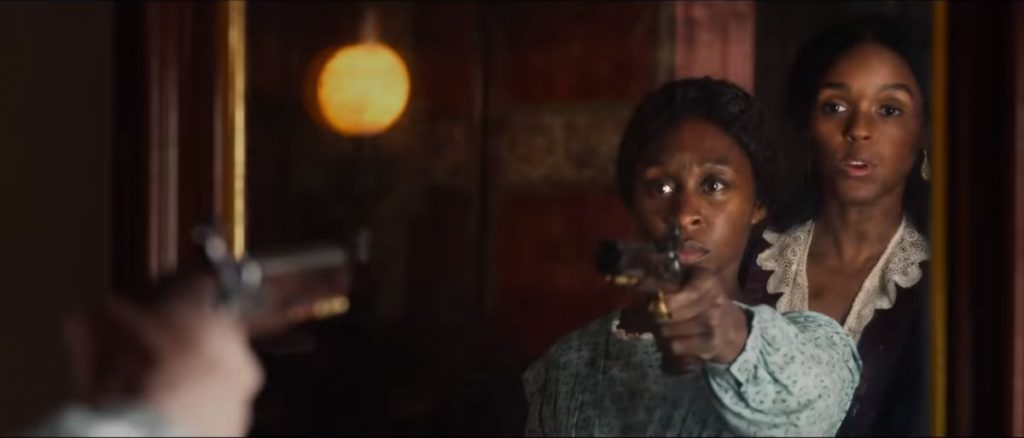Trite and True, by Barnabas Prontnicki
29 Oct

While Harriet serves as a great starting point from which to learn a part of American history, it does little to entertain or provoke.
Harriet tells the story of Harriet Tubman’s escape from slavery and her subsequent missions to free other slaves south of the Mason-Dixon line. There are some strong performances from the likes of Cynthia Erivo, Janelle Monae, and even country music star Jennifer Nettles shows off her acting chops. While a decent movie, you may want to spend your time watching other films this award season.
Harriet feels like a movie that had so much more potential. Only after she makes her escape to freedom for the first time do we experience the gravity of how long and difficult Tubman’s journey was. I would have loved to have seen more of her struggle on the screen. The story of the film focuses on Tubman’s missions to free her family and friends, but takes a while to get there. There’s so much rich potential for conflict and adventure in this story that the filmmakers seemed to steamroll over in order to include all the major points of Tubman’s life.
I picture Harriet being used as a teaching tool amongst high school seniors, which could be taken as a compliment or attack. We see all the highlights of Tubman’s story: her time as a slave, her escape, freedom, journeys to free slaves, her time spent with other abolitionists like Frederick Douglas, how people reacted to the Fugitives Slaves Act, etc., but we are never taken captive by the film. While I was never bored with Harriet, I certainly wasn’t on the edge of my seat.
It seems as though the filmmakers wanted to create a film that could have a younger audience. But PG-13 slavery doesn’t show us the truth about the real injustice Harriet Tubman was fighting, especially without complex villains.
Harriet is the type of movie with very little grey. The good guys are good. The bad guys are bad. There’s nothing in between, but there’s nothing really at stake for the audience. At one point, Tubman confronts her former owner, shouting, “People aren’t meant to own people.” A noble and true sentiment, but nothing particularly new.
The little bit of humor was refreshing. A young man, seeing Harriet’s faith, asks her if she can introduce him to God because he has some “explaining to do.” Besides that and a reference to Jaws’ “We’re going to need a bigger boat,” there’s not much more to break up this long, turgid, by-the-numbers melodrama.



No comments yet